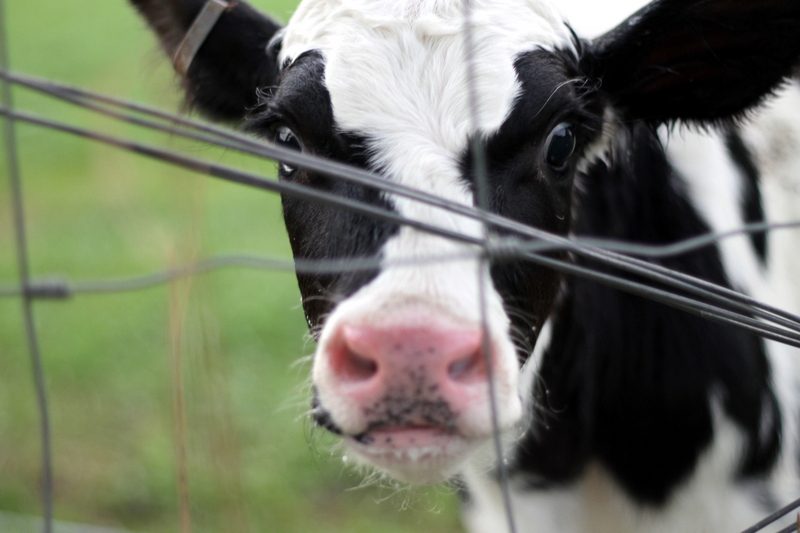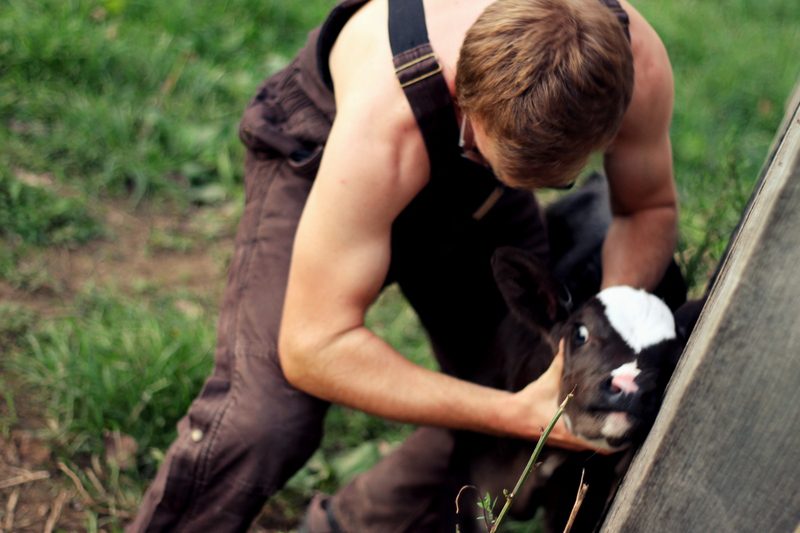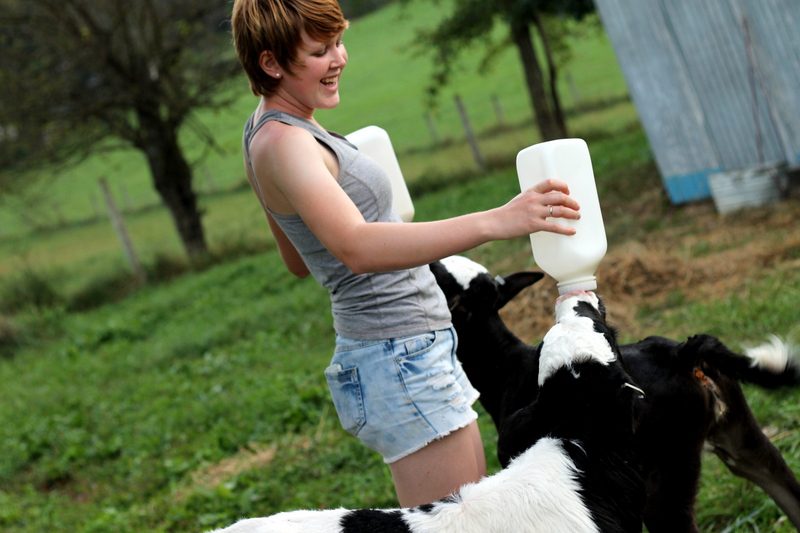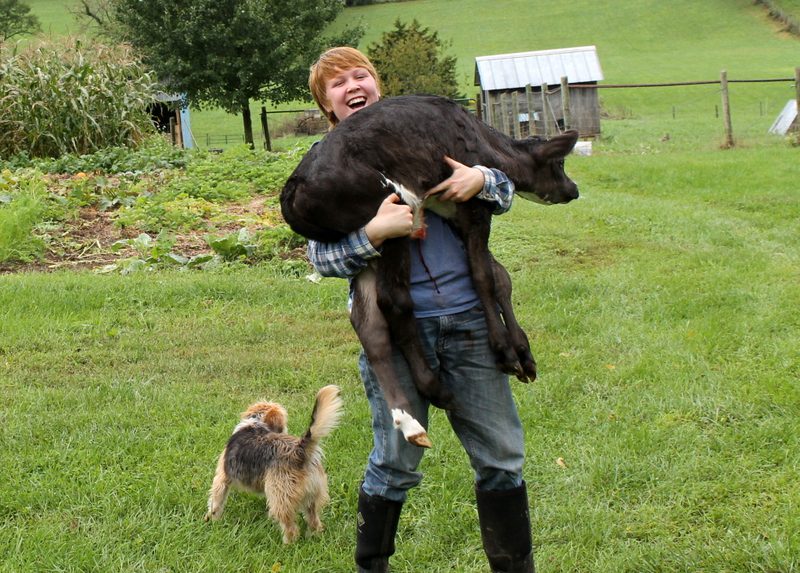We’ve been feeding the calves three times a day: at seven in the morning, one in the afternoon, and seven in the evening.

It’s my older daughter’s job to feed them, but sometimes, like one evening last week, we all chip in, some more happily than others.



That evening the feeding process was complicated by the one calf that had scours. It takes a good deal of coaxing — and a lot of time — to get the milk down, and extra hands to help fend off the rest of the calves. Also, another calf looked like he might be getting scours (he did), and there was a deworming injection for all four beasts.


The calves are gradually earning their names. We now have a Charlie and a Sebastian (though I’m not sure which is which). Half of us want to call the heifer Daisy and the other half are staging a revolt. The fourth calf remains nameless, mainly because he might die.

The scours thing has been a real bugger. One of the calves got so weak that we’d have to lift him into a standing position, and then he’d topple right over, his legs splayed in all directions. Feeding times took forever, and it was so discouraging. But then a vet tech friend popped in with antibiotic injections and advice on the proper electrolytes to use, and the next morning all four calves were on their feet, lined up at the door ready to eat.

There have been relapses (and just yesterday we had to give another electrolyte feeding), but over all the calves are eating well, charging to the bottles and slurping the milk down at breakneck speeds.

So maybe we’ve turned the corner?
This same time, years previous: grape pie, the quotidian (9.26.16), stop and sink, better than cake, test your movies, baking with teachers, the quotidian (9.24.12), when the relatives came, painting my belly.



9 Comments
farm buddy
Are they eating hay and grain too? Be great if you could get them some nice second-cutting hay. My cattle are all grass fed (and hay), calves too, but that is because they stay with their mothers. Getting bottle calves started on grain and hay will help the battle with scours. Do you check their temps when they are sick? Very common for bottle calves to get pneumonia, which can be deadly in a hurry. Symptoms can be similar to scours, as they will usually HAVE scours, plus no appetite, and be very listless. The antibiotic LA-200 is usually very effective and can be purchased at a Tractor Supply or similar store. Best of luck with your calves! Does the puppy like them? My puppy is already learning to be a cow dog at 14 weeks of age.
Jennifer Jo
1. Yes, we started them on grain — a handful after each feeding — and they're taking it just fine.
2. When they were sick, their temps never went up very high.
3. Thanks for the tip re the antibiotic — good to know!
4. The puppy likes to eat the poop (ugh) so we try to keep her away from them.
farm buddy
All dogs LOVE calf poop! Even though it is really gross, probably isn't that bad for them. I have read that sheep manure is actually good for dogs to eat because it is that raw vegetative matter packed with enzymes and other goodies. I saw that some farmers in New Zealand have sheep manure as the main source of food for their livestock guardian dogs. My farmer friends and I call all bright yellow cars calf-poop yellow!! As you probably know, normal temp is 101 to 102, and when they have pneumonia, it spikes up to about 104.
Anonymous
Not sure how you can name them THEN eat them. That would be so hard!
Jennifer Jo
Hmmm, doesn't seem to faze us!
Carol Snyder-Blacker
I think you could maybe knight one of them. Call him Sir Loin.
Ooh, and if one of the other guys was jealous, he could be Baron of Beef!
Crystal
I know nothing about raising calves, but I am so interested. Why do they get scours? What causes it? I'm also wondering why the calves don't just drink their mother's milk for awhile before they are sold? Why are they sold off so young? I'm so curious 🙂
Following your journey with my children.
Jennifer Jo
1. They get scours because of the change in diet (mama's milk to milk replacer) and maybe the change in location, too.
2. We got our calves from a dairy farm. The calves got all the colostrum in the beginning, but then they are sold off within a day or two because the purpose of breeding the cow in the first place was so the farmer could have the milk. (For beef cattle production, the calves often stay with the mothers, getting to drink as much as they need/want.)
Crystal
I see. That makes sense now. Thanks for answering!